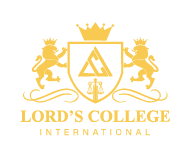Islamabad, Pakistan
Welcome to
Lord's College International
Pioneering Legal Education for Tomorrow’s Leaders
Who we are ?
At Lord’s College International, the knowledge and skills our students acquire throughout their studies form the cornerstone of their legal careers. Additionally, LCI uniquely offers Pakistani law classes to facilitate a seamless transition into Pakistan’s legal profession. Students can trust that the foundation they build here will support their professional aspirations, whatever they may be.
The learning environment at LCI is both challenging and supportive. The diverse backgrounds and perspectives of our student body enrich classroom discussions, fostering a dynamic and engaging academic experience. This is further enhanced by our distinguished faculty, who are accomplished legal professionals. The LCI community is united by a strong sense of camaraderie and bolstered by numerous activities on and off campus.
Admissions Open - 2024 - 2025

Lord's College International Courses Offers
In order to be registered for LLB (Hons) degree you must be atleast 17 years old and satisfy the following:
Either passes in:
- Two subjects at GCE A Levels + at least three further subjects at GSCE or GCE level (not less than grade C).
- Three subjects at GCE A Levels + one further subjects at GCSE or GCE O Levels (not less than Grade C).
A valuable qualification for both legal and non-legal professionals, the University of London LLM ,offers breadth and flexibility, enabling you to tailor your LLM degree to meet your personal and professional interests, without necessarily specialising in one area of law. The LLM from the University of London International Programmes has been developed by academics within Queen Mary and UCL Law departments, both of which have outstanding reputations.
Each course is divided into four modules and there is a separate exam for each module. For some modules, there are set sequences to guide you through the modules (given under the syllabuses). For others, you decide the order in which you study your chosen modules.
You take the following number of courses and modules:
- Postgraduate Certificate – five modules from up to four courses.
- Postgraduate Diploma – ten modules from up to four courses.
- Master of Laws (LLM) – sixteen modules from four courses.
You can choose whether you would like to cover several areas of the law or specialise in a particular area. It is not essential to indicate your desired specialisation when you register with us and you may wish to change your planned specialisation later in your studies. If you choose to specialise, the name of your specialisation will appear in the final certificate of your award, for example ‘Master of Laws in the specialisation: Computer and Communications Law’ or ‘Postgraduate Diploma in Laws in the specialisation: Maritime Law’. If you would like to specialise in a particular field of law, you need to study a certain number of courses or modules within that specialisation, as follows:
- Master of Laws (LLM) – three complete courses (12 modules) chosen from one specialisation.
- Postgraduate Diploma – eight modules chosen from one specialisation.
- Postgraduate Certificate – four modules chosen from one specialisation.
The Bar Transfer Test is the test for lawyers from overseas jurisdictions transferring to the Bar of England and Wales. The purpose of the Bar Transfer Test (BTT) is to enable candidates who are qualified lawyers to have the opportunity to transfer to the Bar of England and Wales, without having to undergo the full course of education and training as required in the Academic Stage (Qualifying Law Degree or conversion course) and the Vocational Stage (Bar Course).
If you are a qualified lawyer from Pakistan and you wish to practise as a barrister in England and Wales, you need to transfer to the Bar. Depending on your qualifications and experience, you may be exempt from some or all of the requirements for training for the Bar. Some of these exemptions may be granted subject to passing the Bar Transfer Test (BTT). In order to be granted an exemption, you must submit an application to The Bar Standards Board which includes information on the qualifications and experience you have.
Islamabad School of Law offers tuition support for the assessments of the Bar Transfer Test which include the following:
Advocacy assessments consisting of Civil Applications, Examination in Chief and Cross-Examination
BSB Centralised Assessment for Civil Applications
BSB Centralised Assessment for Criminal Applications
Professional Ethics Assessment
Legal Research
Conference Skills
Drafting
Opinion Writing
Prior to studying the BTT, you must first apply for an exemption letter through the Bar Standards Board. Once an exemption letter has been received, candidates have five years in which to complete the BTT. Islamabad School of Law offer support with the aforementioned application.
The BTEC Higher National qualifications in Business are aimed at students wanting to continue their education through applied learning. HND Business in Pearson provide a wide-ranging study of the business sector and are designed for students who wish to pursue or advance their career in business. In addition to the knowledge, understanding and skills that underpin the study of the business sector, Pearson BTEC Higher Nationals in Business give students experience of the breadth and depth of the sector that will prepare them for further study or training for a range of careers in business, including management, administration, human resources, marketing, entrepreneurship, accounting and finance.
HND in Computing programme is designed to develop students as independent-thinking professionals who can meet the demands of the IT industry, employers, and MNCs in a constantly changing world. The programme provides an insight and understanding of international computing operations and the opportunities and challenges presented by a globalised market place. Holders of the Pearson BTEC Higher National Diploma will have developed a sound understanding of the principles in their field of study and will have learned to apply those principles more widely. They will have learned to evaluate the appropriateness of different approaches to solving problems. They will be able to perform effectively in their chosen field and will have the qualities necessary for employment in situations that require the exercise of personal responsibility and decision-making. The aims of the Pearson BTEC Higher Nationals in Computing are to equip students with computing skills, knowledge, and understanding to achieve high performance in the global computing environment. The Pearson BTEC Higher National Diploma in Computing offers the following specialist pathways for students who wish to concentrate on a particular aspect of computing:
– Software Engineering
– Applications Development and Testing
– Data Analytics
– Network Engineering
– Cyber Security
Meet Our Faculty Members

Raja Bilal Irshad
(Owner & Founder)

Faisal Pervaiz
LLB (Hons) - UOL, UK

Abiha Haider
LLB(Hons) - LLM - UOL

Sandara noor
LLB (Hons) - UOL

I was impressed by the college's commitment to academic excellence. The faculty were dedicated and passionate, and the campus was a hub of creativity and innovation. I would highly recommend it to anyone seeking a world-class education.

Life in LCI has been a breath-taking and highly enriching experience. The environment in LCI not only motivated me to study harder but also helped me in developing my overall personality and fuelling confidence. I must say i am fortunate that I could be a part of such an incredible institution.

" Law is a demanding subject, and Lord’s College International not only provides you with the guidance necessary to excel, but they do it with zealous dedication. The Lord’s International community is so inclusive and welcoming, with ample opportunities for extra-curricular activities and functions! I’ve made life-long friends and memories here, and it will always hold a very special place in my heart

" I am proud to be a graduate of the Lord’s College International. It provided me a unique platform and many great opportunities. The curriculum reflects the faculty’s genuine dedication to their students’ development not only as professionals, but also as individuals. The professors here are exemplary in their teaching styles and genuinely invested in me and my professional journey and allowed me to make what I wanted and needed out of the experience. I am so thankful for my time at Lord’s College International.
Frequency Asked
Questions
Have Any Questions On Your Minds !
In Person
You just have to visit us to Fill out the Admission form, and we will issue an initial deposit Voucher to you. Once you submit the initial fee (Admission, Registration and First Instalment) You will be enrolled and Can take classes.
ONLINE
You would share scans of
1. CNIC/B-Form
2. Last qualification
3. Passport picture
After which a fee voucher will be generated and upon payment you will have access to the classes.
Minimum Age: 17 years no maximum age limit
Either passes in:
- Two subjects at GCE ‘A’ level + at least three further subjects at GCSE or GCE ‘O’ Level (at or with not less than Grade ‘C’)
- Three subjects at GCE ‘A’ Level + one further subject at GCSE or GCE ‘O’ Level (at or with less than grade ‘C’)
- BA/BSc/BCom/MSc/M.phil Minimum 40%
- FA/FSc/I.com Minimum 40%
1. University of London LLB(Hons):
- Duration: 3 years
- All three years are examination-based, with exams conducted by the British Council.
- The degree is awarded by the University of London.
- Successful completion leads to a license from the Pakistan Bar Council.
2. HND Business:
- Duration: 2 years
- A diploma program leading to a BA (Hons) from a UK university.
- Coursework-based qualification with no exams.
- Open to FSC/A'Levels holders with no IELTS or entry tests required.
3. HND Computing:
- Duration: 2 years
- A diploma program leading to a bachelor's degree from a UK university.
- Coursework-based qualification with no exams.
- Open to FSC/A'Levels holders with no IELTS or entry tests required.
4. HND Law:
- Duration: 3 years
- The first two years comprise entirely of assignment work, while the third year (Top-up) involves a partial exam.
- The third year is optional, providing students the choice to pursue a Top-up year in the UK or complete their degree at Lord's College International.
- Successful completion leads to a license from the Pakistan Bar Council.
For further information, queries, and guidelines, please feel free to reach out to us at:
📍 Plot 12-K, Behind Post Office Sitara Market, G-7/2, Islamabad
📞 Tel: 03039105596











